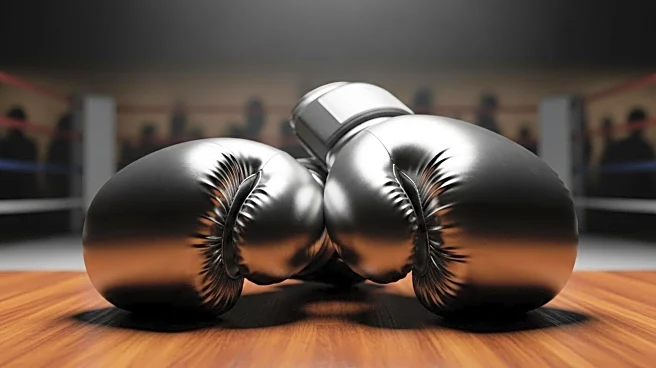What's Happening?
Frankie Edgar, a former UFC lightweight champion, was scheduled to make his debut in bare-knuckle boxing at BKFC 82 in New Jersey. However, the fight was canceled days before the event, leading Edgar to express
frustration over the decision. Edgar claims he was medically cleared to fight, having undergone extensive medical tests, including heart and neurological exams, all of which showed he was fit to compete. Despite this, BKFC informed him that a doctor recommended against his participation due to his age and recent fight record. Edgar suspects the real reason for his removal was poor ticket sales for the event, as he was one of the highest-paid fighters on the card. He warns other fighters about potential similar treatment from BKFC.
Why It's Important?
The cancellation of Edgar's fight highlights potential issues within the BKFC organization, particularly regarding fighter management and event planning. If Edgar's claims are accurate, it suggests that financial considerations may override fighter agreements, impacting the credibility and trustworthiness of BKFC. This situation could deter fighters from joining BKFC, affecting the organization's ability to attract high-profile athletes. Additionally, Edgar's public criticism may influence public perception of BKFC, potentially leading to decreased fan support and ticket sales for future events.
What's Next?
Edgar has indicated he is content with retirement but remains open to future opportunities if they arise. BKFC may need to address the allegations to maintain its reputation and reassure fighters and fans. The organization might consider revising its event planning and fighter management strategies to prevent similar issues. Edgar's comments could prompt other fighters to share their experiences, potentially leading to broader scrutiny of BKFC's practices.
Beyond the Headlines
Edgar's situation raises ethical questions about the treatment of athletes in combat sports, particularly regarding transparency and fairness in contractual agreements. The incident may spark discussions about the balance between financial interests and athlete welfare in sports organizations. Long-term, this could lead to calls for regulatory changes or increased oversight in combat sports to protect fighters' rights.











